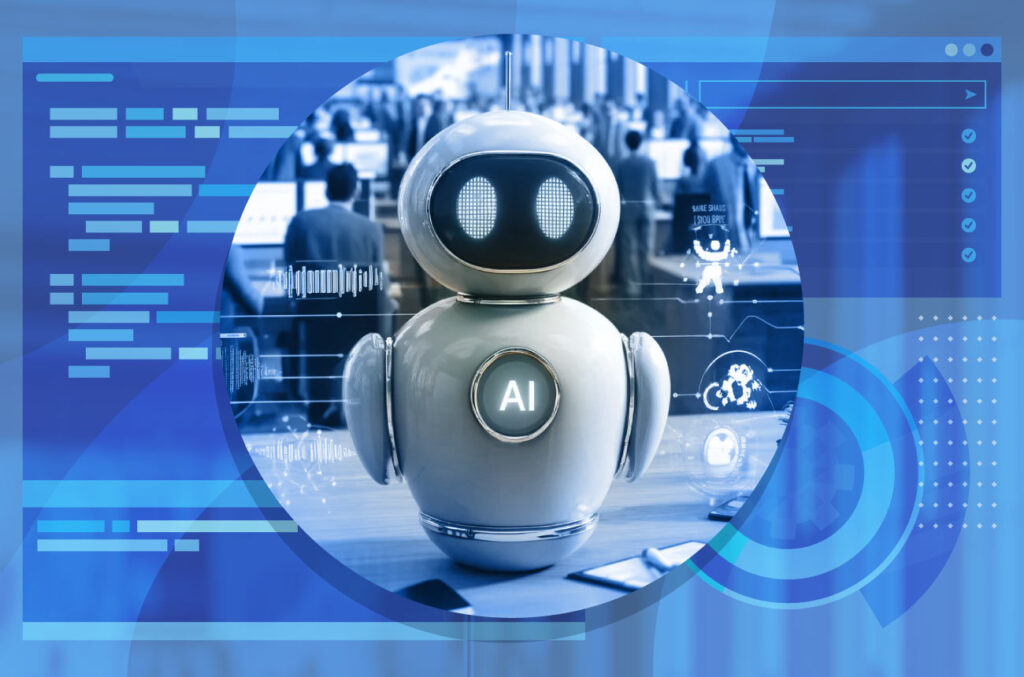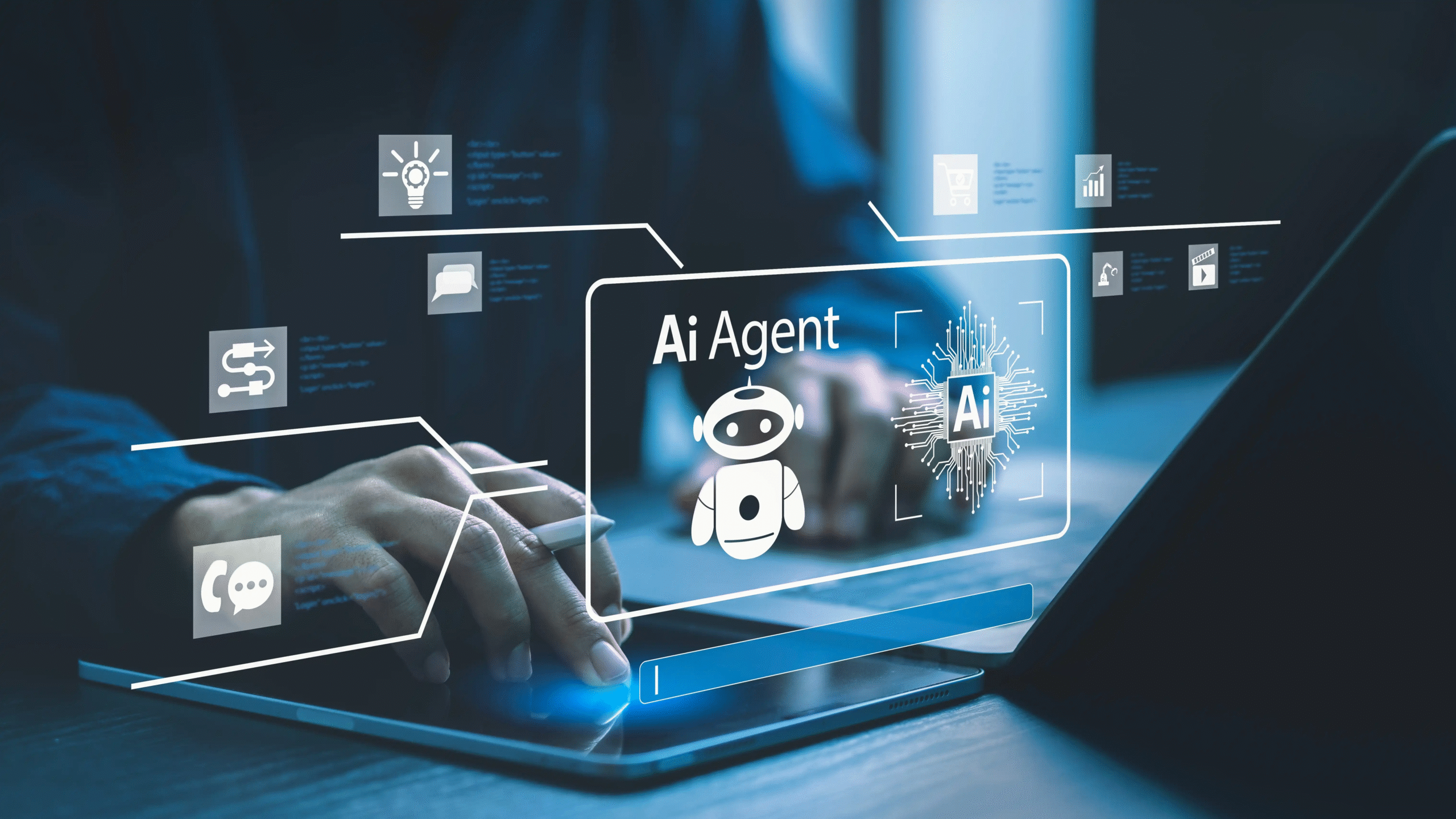AI Agents are sophisticated software entities designed to perceive their environment, make autonomous decisions, and take actions to achieve specific goals on behalf of users. Unlike static AI models, AI Agents are dynamic, goal-oriented systems capable of learning and adapting over time.
Key Takeaways
- AI Agents are autonomous software systems that interact with environments and pursue goals.
- They differ from AI models in their ability to perceive, reason, plan, and act independently.
- AI Agents possess characteristics like autonomy, proactivity, social ability, and reactivity.
- Types range from simple reflex agents to complex learning agents that adapt over time.
- They are transforming various industries, from customer service and healthcare to finance and robotics.
Table of Contents
Understanding the Concept of AI Agents
In the rapidly evolving world of artificial intelligence, AI Agents represent a significant step beyond traditional AI models. While an AI model is essentially a program trained to process data and generate insights (like an image classifier recognizing objects), an AI Agent is an entity built to act in an environment to achieve a defined objective.
Think of an AI Agent as an intelligent software robot. It uses sensors (input data) to perceive its surroundings, processes that information, reasons about the best course of action, and then uses actuators (outputs) to perform tasks. This entire process is geared towards maximizing its chances of achieving its programmed goals.
The core distinction lies in their purpose and autonomy: AI models are the “brains” that provide analytical capabilities, often embedded within an Agent to help it make decisions. An Agent is the “operational entity” that executes tasks and interacts with the real world, whether digital or physical. For example, a self-driving car is an AI Agent that uses various AI models (for object recognition, navigation, etc.) to operate autonomously.
The Characteristics of an Effective AI Agent
To truly be considered an intelligent agent, these systems typically exhibit several key characteristics:
- Autonomy: They can operate independently and make decisions without constant human intervention.
- Reactivity: They can perceive their environment and respond to changes in real-time.
- Proactiveness: They can initiate actions to pursue goals, not just react to stimuli.
- Goal-Oriented: They are designed with specific objectives they strive to achieve.
- Learning: Many advanced AI Agents can improve their performance over time by learning from experience and past interactions.
- Social Ability (in multi-agent systems): They can interact and collaborate with other agents, whether human or AI, to achieve shared or individual goals.

Diverse Types of AI Agents
AI Agents come in various forms, each suited to different levels of complexity and environmental interaction:
- Simple Reflex Agents: These are the most basic, acting solely based on current perceptions using predefined condition-action rules. An example is a thermostat that turns on heating when the temperature drops.
- Model-Based Reflex Agents: These agents maintain an internal model of their environment, allowing them to consider past states and better adapt to partially observable environments. A robot vacuum cleaner mapping a room is an example.
- Goal-Based Agents: These agents have explicit goals and evaluate different actions to find the ones that best move them closer to their defined objectives. A navigation app finding the fastest route is a common example.
- Utility-Based Agents: More advanced, these agents not only pursue goals but also aim to maximize a “utility” or preference scale, choosing actions that yield the best overall outcome or satisfaction. A stock trading bot balancing risk and return fits this category.
- Learning Agents: These are the most sophisticated, capable of improving their performance over time based on experience. Recommendation systems that refine suggestions based on user feedback are prime examples.
Real-World Applications of AI Agents
The capabilities of AI Agents are transforming numerous industries, automating complex tasks and creating new efficiencies:
- Customer Service: AI-powered chatbots and virtual assistants handle routine inquiries, provide 24/7 support, and can even process requests like password changes or refunds, significantly enhancing customer satisfaction. [Image: A chatbot interacting with a customer]
- Healthcare: AI Agents assist in medication management, appointment scheduling, and even help diagnose conditions by analyzing patient data and medical images. Multi-agent systems can optimize hospital logistics.
- Finance: In banking and finance, AI Agents are used for fraud detection, automating reports, monitoring transactions, and providing personalized financial advice or autonomous trading strategies.
- E-commerce & Retail: They personalize shopping experiences, manage inventory, send abandoned cart reminders, and offer tailored product recommendations, driving sales and improving efficiency.
- Robotics and Automation: From factory robots coordinating assembly tasks to self-driving vehicles navigating complex environments, AI Agents enable autonomous physical systems.
As these intelligent systems become more advanced, they are increasingly capable of handling multi-step processes and adapting to dynamic situations, unlocking new levels of automation and intelligent decision-making across almost every sector.
Challenges and the Future of AI Agents
Despite their immense potential, the development and deployment of AI Agents come with significant challenges. These include:
- Managing Complex Environments: Ensuring AI Agents can robustly handle unpredictable real-world scenarios and edge cases.
- Balancing Autonomy with Control: Designing agents that can act independently while still allowing for human oversight and intervention when necessary.
- Ensuring Ethical and Safe Behavior: Addressing issues of bias, transparency, accountability, and unintended consequences, especially in high-stakes applications.
- Data Dependence: The need for high-quality, unbiased, and diverse datasets for effective training and learning.
As research continues, the focus remains on making AI Agents more robust, reliable, and trustworthy. The future promises increasingly sophisticated AI Agents that can collaborate more seamlessly with humans, tackle more complex problems, and deliver even greater value across a myriad of applications.
Frequently Asked Questions (FAQ)
What is the primary difference between an AI Agent and an AI Model?
An AI model is typically a trained program for processing data and generating insights (e.g., recognizing patterns). An AI Agent is a broader system that uses AI models to perceive its environment, reason, plan, and take autonomous actions to achieve specific goals.
Can AI Agents learn and improve over time?
Yes, many advanced AI Agents are designed as “learning agents” and can improve their performance. They learn from experience, feedback from their environment, and past interactions, allowing them to adapt their behavior and decision-making over time.
What are some ethical concerns associated with AI Agents?
Ethical concerns surrounding AI Agents include the potential for algorithmic bias leading to discriminatory outcomes, issues of accountability when autonomous agents make harmful decisions, privacy concerns due to extensive data collection, and the need for sufficient human oversight to prevent unintended or undesirable actions.
- Top 6 Best Property Management Accounting Platforms For Small Landlords
- 12 Surprising AI Tools That Actually Make You Money (or Save You Time)
- Sam Altman Career Advice 2025
- AI frontrunners bottlenecks: 3 Alarming Challenges Facing Tech Leaders
- Beginner’s guide to automating business processes with AI

